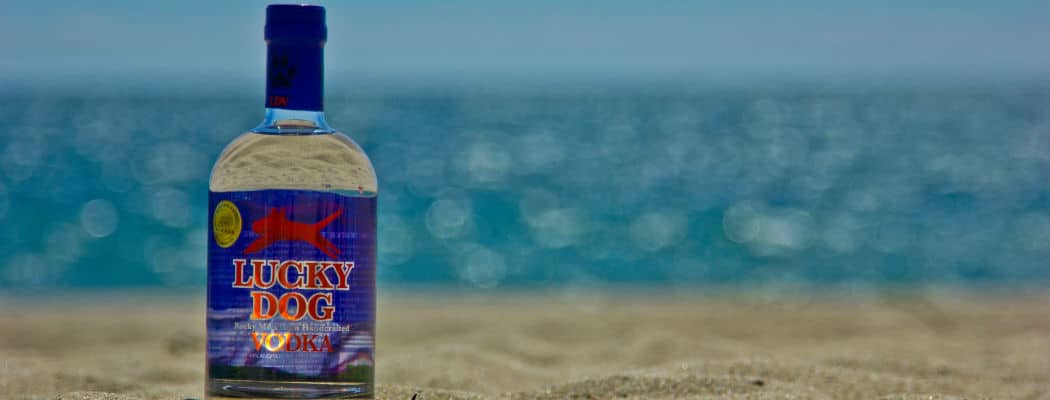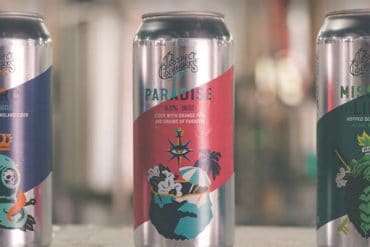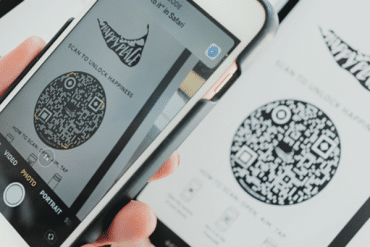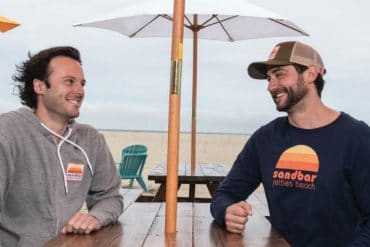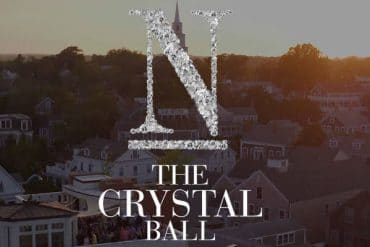I’d never really believed that the Fates play a dominant role in screw-ups. I attributed disaster instead to poor decisions, which shared both a lack of critical thinking and a tendency to build atop one other. Sort of like constructing a stone house on a foundation of straw. I also believed that you could anticipate the consequence of actions – see the train barreling your way and simply step off the tracks. But of course this theory discounted the nature of random events. And random events had conspired to leave me stark naked on the bank of a reeking, algae- covered canal in Amsterdam, two bottles of vodka and a sodden pair of boxer shorts at my feet. Well, as any storyteller knows, good tales are never really born of good experience.
The journey had begun innocently enough. I’d traveled from Nantucket to Amsterdam with the hope of selling my fledgling vodka brand to the world’s largest liquor company. How it all went wrong is on one level a story of bad timing and a locked iron gate. But it’s also a parable of the challenges that confront any would-be entrepreneur, especially in the opaque and ultra- competitive world of making and selling handcrafted vodka.
 Launching Lucky Dog Vodka in 2012 was in equal parts reaction to burnout from running a Nantucket construction business for 25 years and also a nostalgic desire to return to the adrenaline fueled days of my youth. As a young man I had been a member of the US Ski Team and professional mogul skier – a period largely memorable for idiotic risk taking. I eventually acknowledged mortality and moved towards safer, saner exploits. But in casting a net for new ventures there was an undeniable gravitation back towards the siren’s call of risk, and I knew that the vodka business offered both outsized dangers and rewards. So I unceremoniously leapt in – and was quickly over my head.
Launching Lucky Dog Vodka in 2012 was in equal parts reaction to burnout from running a Nantucket construction business for 25 years and also a nostalgic desire to return to the adrenaline fueled days of my youth. As a young man I had been a member of the US Ski Team and professional mogul skier – a period largely memorable for idiotic risk taking. I eventually acknowledged mortality and moved towards safer, saner exploits. But in casting a net for new ventures there was an undeniable gravitation back towards the siren’s call of risk, and I knew that the vodka business offered both outsized dangers and rewards. So I unceremoniously leapt in – and was quickly over my head.
The thing about the vodka business, though, is that it tended to take on a life of its own. While the merits were admittedly debatable – one friend compared the grim ravages of vodka to those of crystal meth – the audacity of the undertaking impressed friends and family far more than, say, starting a car wash or a hedge fund. I had no doubt that my eighteen year old self would wholeheartedly approve of the venture. And, if not exactly profitable, it was at least fun. People thought that I was gutsy, ambitious, stupid, or maybe a dog lover (I don’t have a dog). There was also the indescribable thrill of – very occasionally – unexpectedly seeing my vodka in a bar or store or emblazoned on the tee shirt or ball cap of someone I’d never seen before. It was always a welcome jolt, like running into a friend whose future you really, really cared about.
I also viewed my lack of experience as bestowing upon me an observer’s perspective into the business. I had been drinking vodka for many years and assumed that what appealed to me in terms of name, bottle, branding, etc would by extension appeal to the drinking public at large. And flying by the seat of the pants did perhaps confer a certain ability to see trends within the business that might support only a short shelf life (see marshmallow or bacon flavored vodka).
Over time, it became clear that making a go of vodka would require deep pockets. I needed the support of a much larger company and was of the conviction that in making such an approach the personal meeting would inevitably trump the email pitch. The meeting with Diageo (the liquor company) was my idea, not theirs, but it seemed just the sort of Hail Mary pass that very occasionally worked out for other people, at least in the movies. It was admittedly grandiose thinking and brought to mind a couple of identical comments that I’d received from industry guys during my two years in the business. “What you’re doing is pretty gutsy,” they had independently volunteered, which I had taken at the time as complimentary. Given my de facto business plan – launching a vodka brand with no experience or money – I later realized that what they were gently saying to me was “If you knew what you were doing, you wouldn’t be doing this.”
Occasionally I was plagued by doubt. And my mind, fleeing from awkward vodka moments, would settle upon a personal axiom; ‘Just try not to screw up too badly.’ Well, if it was my lot to serve as a cautionary tale, then so be it. As Epicurus famously said, “The greater the difficulty, the more the glory in surmounting it.” I would at least wind up with a story.
Ah, but back to the meeting. Amsterdam! City of culture and commerce and decadence, home since the twelfth century to artists, merchants, sailors, prostitutes – perfect stage for the aspiring entrepreneur. The air in the old town felt full of possibility, and I breathed it in like oxygen.
My hotel advertised itself as the oldest in this very old city – a claim lent credence by a discernible lack of upkeep over the centuries. Standing in front of the building and observing its lean from the passage of years (I assumed it was built plumb), I felt both enervated from the sleepless flight over (a young french boy kicked my seat nonstop) and energized by the surroundings and pre-meeting adrenaline. Below street level in the building next door a bored looking window prostitute beckoned with a listless wave. Rembrandt could easily have slept – or died – here. But given the foreign and historical context, I was prepared to forgive the hotel its shabbiness. It was very Dutch. There seemed to be plenty of drinking going on outside – party boats full of hollering young celebrants formed a large percentage of canal traffic, and the streets were full of bikes and drunks (sober Dutch on the bikes, staggering English revelers afoot). I checked in and climbed the steep, winding stairs to my small room, set my bag on the floor and fell into a dead sleep.
The next morning there were still a few holdout drunks outside on the street and I shuttered the windows against their shouting. I felt quite nervous about the meeting. Distrustful of the city’s taxis and confused by the circular nature of the canals and streets, I elected to leave early and walk to the company’s corporate offices on the outskirts of town. I carried only a Lucky Dog emblazoned canvas tote bag with two bottles of vodka in it. All around me cyclists pedaled straight-backed and purposefully alongside street trams and cars past shopkeepers and window washers and tourists.
Arriving at the address a full two hours early, I looked for a nearby spot to sit and practice The Pitch. I was even more nervous now. The trick, as I saw it, would be a barely contained enthusiasm for the undertaking that would conceal my lack of…everything else. Confidence – or at least a lack of discernible fear – appeared to be the one commodity in the business that was both a predictor and indicator of success. But I was also of the opinion that even if confidence was in short supply, you could at least fake it for a little while.
Diageo had a staid and tastefully designed headquarters with a low, meandering brick construction that smacked more of academia than business. In my research I’d read that the London-based company had created a Dutch central entity to minimize British profits and taxes. Of course, I had no idea what ‘central entity’ even meant.
Directly behind their building was what appeared to be some kind of large public green space or park. A place to regroup, to gather my thoughts and energies, to practice positive visualization like an athlete preparing for The Big Game. Perfect for my needs.
I walked through an impressive pair of iron gates into the park. There was no one else to be seen and I followed a meandering path to a small sunlit clearing, settled on a tree stump and pulled out my notes. An hour and a half passed. I checked my watch every few minutes, trying to contain the adrenaline and translate it into enthusiasm. With no one within earshot, I was free to practice key lines out loud. “The brand is strategically positioned, unpretentious and fun!” I declared, holding up a finger for emphasis.
 Fifteen minutes before the meeting I determined that it was time to head up. Retracing my steps back up the path, I stopped short at the sight of the massive iron gates – now closed shut. And locked. Stepping back, I observed what I’d missed on the way in; the gates were twelve feet high and augmented with barbed wire that ran along the top and sides. What’s more, they formed a barrier that effectively prevented travel over a small bridge — another detail I’d failed to notice earlier.
Fifteen minutes before the meeting I determined that it was time to head up. Retracing my steps back up the path, I stopped short at the sight of the massive iron gates – now closed shut. And locked. Stepping back, I observed what I’d missed on the way in; the gates were twelve feet high and augmented with barbed wire that ran along the top and sides. What’s more, they formed a barrier that effectively prevented travel over a small bridge — another detail I’d failed to notice earlier.
The bridge crossed a moat, or canal, perhaps twenty feet across, that was abundant with such verdant growth off the banks as to render it nearly invisible. Contributing to its camouflage was a thick scum of green algae of the same shade as the surrounding vegetation. It appeared to run along the perimeter of the park. Even if viewed dispassionately, this was undisputedly devolving into what pretty much anyone would call A Situation. And what kind of park locks its visitors inside at lunchtime?
Anxiety escalated as I began to first trot, then run, following the moat around the park in search of another bridge or escape. Anything would have sufficed – a tree branch overhanging the canal to shimmy across, a fallen log to tightrope walk over. But there was nothing of the kind, and a wasted eight minutes of running brought me around the perimeter of the park and back to The Gates.
It didn’t appear an option to wait for help until whoever locked the gates came back and unlocked them. Not escaping immediately would, to my frantic thinking, blow the meeting, my trip across the Atlantic, my potential acquisition and future – all sunk beneath the moat’s foul surface. Getting to the far bank took on the urgency of migrating wildebeest crossing a crocodile infested river.
Emergency demands – and occasionally rewards – action over deliberation. I removed the two bottles of vodka from the tote bag and carefully lobbed them over to the muddy far bank of the canal, then hurriedly stripped off all my clothes – save boxer shorts – and stuffed them into the empty tote. I lowered myself quickly into the foul scum of the canal, hoping that it was at least shallow and wade-able. Instead, the drop off was immediate – it had clearly been dredged – and had no apparent bottom, leaving me submerged to my neck and treading cold water. I used one arm to breaststroke and the other to hold the tote bag atop my head and quickly swam my way over. Clawing vertically up out of the muck left me gasping and filthy on the opposite bank.
I stripped off my sodden boxers and tossed them in the canal, completing my nakedness. Though there had been no one else in the park, there were pedestrians on the path running past it. Squeaking pedals announced a pair of passing cyclists and, still naked, I crouched low and unseen in the undergrowth. I removed my clothes from the bag, put the vodka bottles back in, and dressed as quickly as possible. The dress chinos and shirt soaked through immediately. My carefully selected casual business attire now more befitting someone in Amsterdam for a stag party. And a faint, foul smell from the canal had attached itself to me. I buttoned my blazer and jogged up towards Diageo’s building. I should note that their shining, reflective windows looked directly over the park and canal. I could picture the Diageo guys standing around one of the windows watching. “That guy swimming naked across the sewer channel? Pretty sure he’s my next meeting, guy from Lucky Dog Vodka.” A story to be forever enshrined in Diageo lore.
The receptionist gave me a hard look and a name tag to clip to my blazer. I took a seat and rubbed my hands hard up and down my pant legs, in hopes that the friction would dry the cloth more quickly. I also concentrated on slowing my breathing.
The Global Director of White Spirits bounded into the room momentarily. He was a good looking, hip English guy. Freewheeling type; untucked shirt and unshaven. Great teeth, for an Englishman. The picture of congeniality in introducing himself. And I the while keeping total eye contact, lest his gaze drop to my wet pants. I’d elected to go with the informal tie-less look, but now wore my shirt buttoned to the top, fearing that a necklace of algae showed around my throat. I held the tote bag with both hands in front of my groin, like a shield – the thin, wet chinos and missing underpants had left me feeling visibly naked below the waist. The Director led the way to a nearby conference room – I noticed that it’s floor to ceiling windows looked out over the park.
We sat, I presented him with a bottle of vodka and promptly launched into my spiel. We had great awards and press, we filled a market niche by being fun and unpretentious without being trendy, we were spot on with American farm to bottle trends. I rattled off lists of press and awards.
And, finally, ‘The Ask’; that Diageo take a majority stake in Lucky Dog for the paltry sum of a half million dollars. Or a total acquisition for one million. To my thinking, these were modest numbers when viewed against the potential of what my friend Eddie assured me was The Greatest Brand in the World.
The Director inspected the bottle as I spoke – I noticed a small clump of mud or perhaps fecal matter stuck on the glass from where it had landed on the canal bank. I also noticed that, although I had only submerged to my neck, my head and face were beginning to sweat. The Director wore a bemused half smile as I rambled on. An astute guy, he likely sensed that something was amiss – even in my faint window reflection I could discern the wrinkled clothing and see that some of my hair appeared to be standing straight up.
After hearing me out, the Director carefully set the bottle down, smiled, and gave it to me straight. To wit; I had undoubtedly heard that Diageo was restructuring, that they were laying off half their workforce, divesting of many vodkas in the portfolio, the Director himself was being transferred to Singapore. And a further recitation of vodka’s perils – it’s saturation in the market, the stupendous amounts of money needed to succeed; all the familiar laments that I’d heard back in the States. I mustered the discipline to avoid nodding my head in agreement. Having succinctly disabused my visions of acquisition, the Director turned to a bit of small bore conversation, and then thanked me for taking the trouble to come in.
It was an obvious conclusion to the meeting, and there was nothing to do but rise and shake hands. I did notice a small amount of water on the seat of my chair and that the conference table appeared damp where my forearms had rested. The Director thanked me again for the vodka and wished me success, said he looked forward to following our progress. We shook hands again, and I walked out of the building.
 It really was a beautiful May afternoon and as I walked back towards the old town the church domes and towering gables began to slowly replace the low office buildings. My clothes had dried, and my initial disappointment began to slowly and unexpectedly fade. And even though I should have distilled the Director’s polite discouraging words down to their essence and been in turn discouraged, I instead felt somehow liberated. I felt a surge of optimism.
It really was a beautiful May afternoon and as I walked back towards the old town the church domes and towering gables began to slowly replace the low office buildings. My clothes had dried, and my initial disappointment began to slowly and unexpectedly fade. And even though I should have distilled the Director’s polite discouraging words down to their essence and been in turn discouraged, I instead felt somehow liberated. I felt a surge of optimism.
The world would always demand alcohol, and I would be patient about how my startup would survive and grow and ultimately thrive. There’s an obvious temptation in a new venture to envision oneself as that outlier among outliers who will defy the odds to set industry on its ear. The reality of course that such success relies less on wisdom than on a freakish head on collision of hard work and great luck. Which is probably how it should be. As Socrates once posited, the only true wisdom is in knowing you know nothing.
Feeling well-disposed towards the world, I approached a corner café, the patrons at sidewalk tables sitting with faces lifted to the northern sun. A drink was in order, but for the moment I’d had enough of vodka. I grabbed an empty seat and ordered a large Dutch beer.


